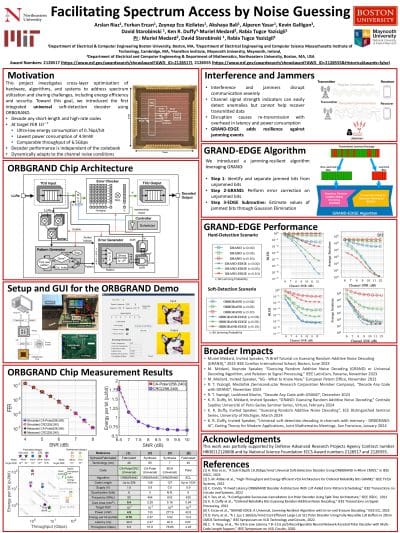Authors
Arslan Riaz, Furkan Ercan, Zeynep Ece Kizilates, Akshaya Bali, Alperen Yasar, Kevin Galligan, David Starobinski, Ken R. Duffy, Muriel Medard, Rabia Tugce Yazicigil
Abstract
This research program holistically integrates multiple areas, including information and coding theory, wireless communication and networking, security, and hardware architectures to enable efficient and robust wireless spectrum utilization. A key innovation resides in separately managing noise effects and interference effects so that stations employing different codes and rates may collide. Specific research questions being addressed include (1) achieving successful simultaneous use of spectrum by allowing collisions without coordinating coding schemes in the MAC layer; (2) designing energy-efficient and code-agnostic decoder algorithms and hardware architectures exploiting assumed channel noise while incorporating interference cancellation techniques; (3) exploring new physical-layer approaches to prevent, mitigate, and detect attacks on energy- and spectrally-efficient wireless communications. Toward this goal, we introduced the first integrated universal soft-detection decoder using ORBGRAND. OBRGRAND consumes ultra-low energy of 0.76pJ/bit and low power of 4.9mW with a throughput of 6.5 Gb/s at a target Frame Error Rate (FER) of 10^-7,

